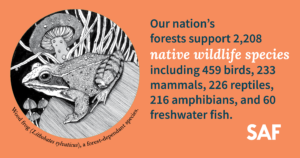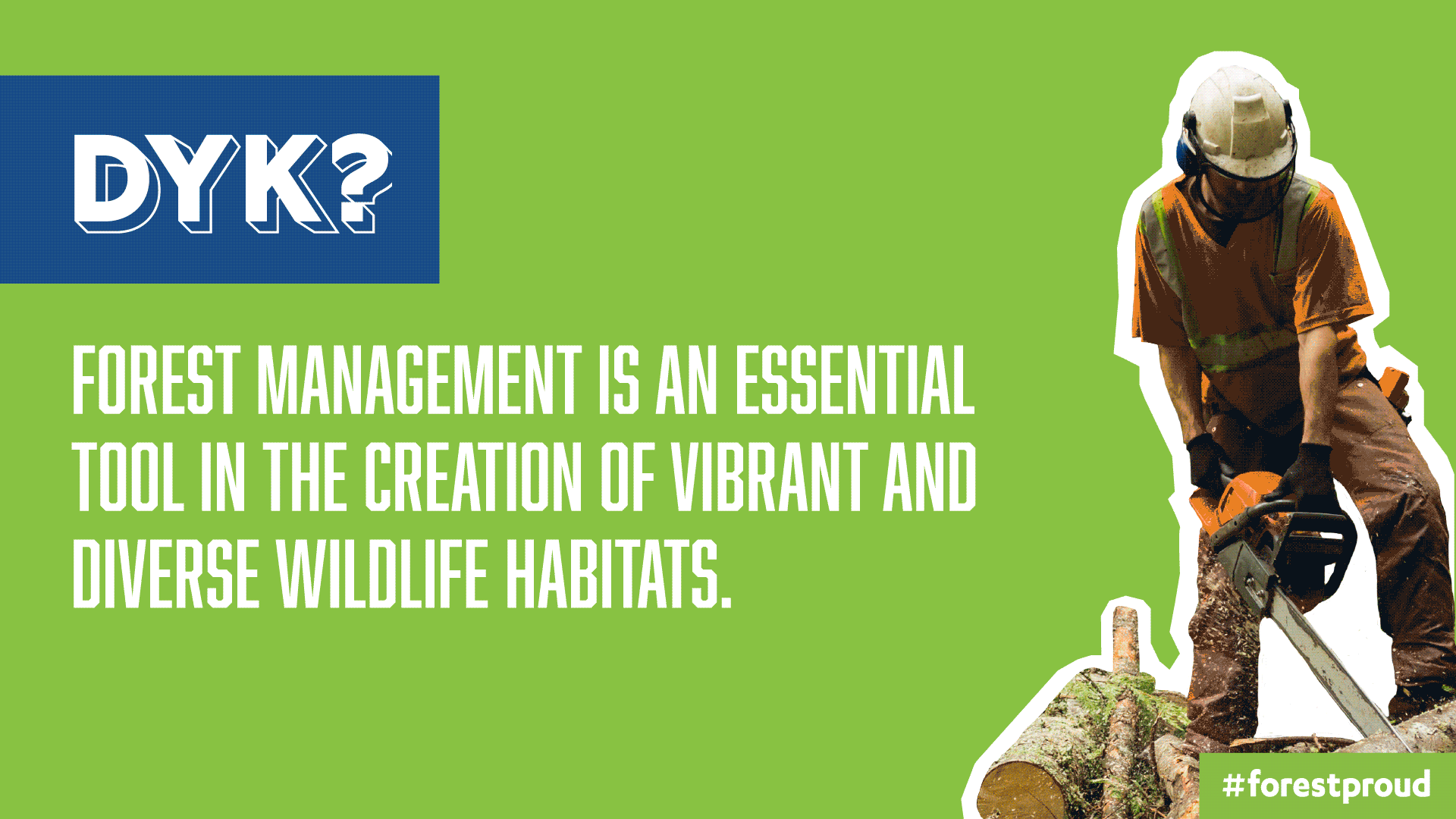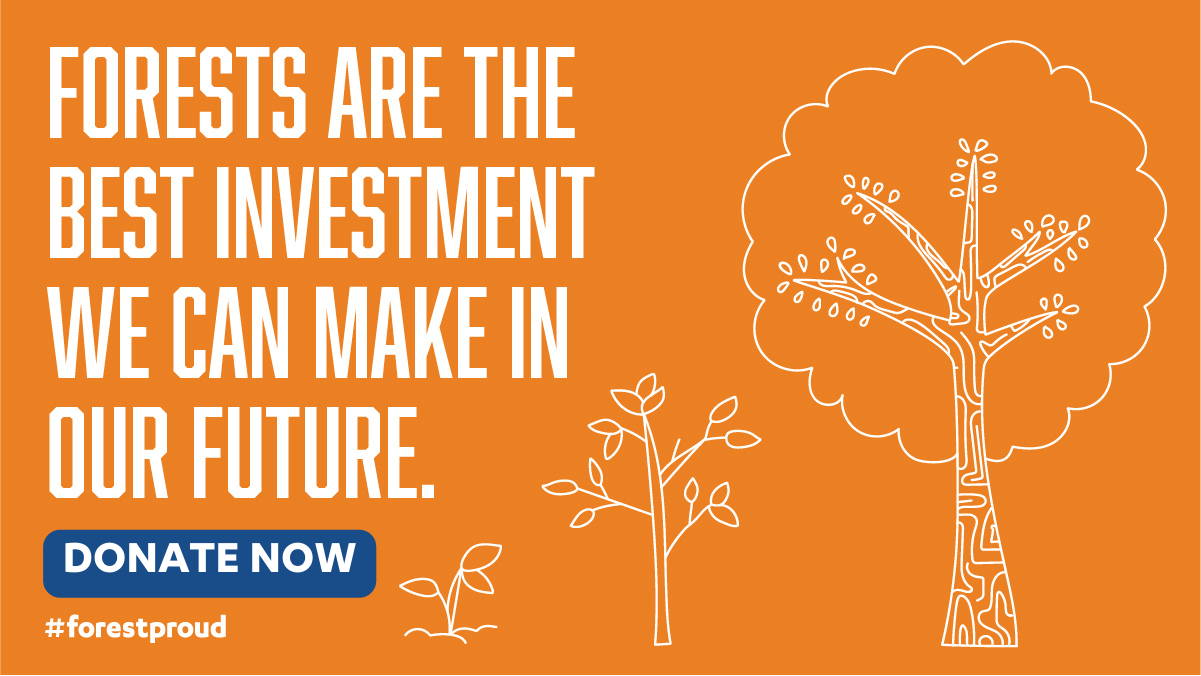Sustaining Biodiversity in the Face of Climate Change
Forest Management is Key

Forests, crucial spaces for biodiversity and climate regulation, are facing increasing threats from climate change.
Forest management is key to sustaining biodiversity in the face of climate change.
 Forests provide habitat for thousands of species, regulate climate, purify air and water, and support the livelihoods – and lives – of millions of people. As one of the planet’s most significant carbon sinks, forests play a pivotal role in regulating our climate by absorbing and storing carbon dioxide (CO2), so ensuring forests remain resilient and healthy is an essential part of climate change mitigation strategies.
Forests provide habitat for thousands of species, regulate climate, purify air and water, and support the livelihoods – and lives – of millions of people. As one of the planet’s most significant carbon sinks, forests play a pivotal role in regulating our climate by absorbing and storing carbon dioxide (CO2), so ensuring forests remain resilient and healthy is an essential part of climate change mitigation strategies.
With changing climate conditions leading to extreme weather events, altered precipitation patterns, and rising temperatures, and with human activities like land conversion and urbanization adding additional pressures, forests, and the diverse life they support, are under increasing strain.
Forest management has a critical role to play to help us ensure resilient habitats for wildlife and thriving natural climate solutions for today and tomorrow. Forestry encompasses the science, art, and practice of managing forests sustainably for various purposes, including timber production, wildlife habitat preservation, recreation, and ecosystem services. Effective forest management involves a holistic approach that considers ecological, economic, and social factors.
Climate change poses unprecedented challenges to forests. Rising temperatures, droughts, flooding, fires, the spread of pests and diseases, and extreme weather events are threatening the health and resilience of forest ecosystems. These changes are exacerbating the biodiversity crisis, with many species becoming more and more vulnerable to extinction. In the face of these threats, proactive forest management is more crucial than ever.

Here's why:
By preserving and restoring the wide range of habitats inherent in different forests, forest management plays a vital role in conserving biodiversity. Strategic land-use planning, protected area management, and habitat restoration initiatives can help safeguard the rich diversity of plant and animal species that depend on forests for survival. Just as not all forests are the same, not all species need the same habitat, so careful, targeted, and varied forest management is needed to ensure biodiversity and the persistence of vulnerable habitats and species.
Forests provide a wide range of ecosystem services essential for human well-being, including filtering air and water, regulating climate by storing carbon, providing pollinator habitat, and enhancing our quality of life. Sustainable forest management ensures that these services are maintained for future generations. Forests are not only valuable for their ecological functions but also for the livelihoods and cultural heritage practices of communities. Responsible forest management can support sustainable forestry practices, create employment opportunities, and generate income while conserving natural resources for future generations.
Finally, well-managed forests are more resilient to the impacts of climate change, which helps not only the overall health of the forest and planet, but also the millions of things that live in them. Practices such as selective logging, prescribed burning, and reforestation can help maintain forest health and create essential habitat. This management also reduces the risk of wildfires and enhances carbon sequestration, mitigating climate change effects and creating essential spaces for biodiversity. Forest management strategies can contribute to both adaptation to and mitigation of climate change. By enhancing forest resilience and carbon storage capacity, well-managed forests can help communities adapt to changing environmental conditions while also reducing greenhouse gas emissions.

Healthy, adaptive, and resilient forests are essential to provide habitat for wildlife, help us address the climate challenge, and sustain human well-being. However, the combined threats of climate change and the biodiversity crisis are putting immense pressure on these vital ecosystems. By embracing sustainable forest management practices, we can help protect and restore forests, ensuring resilient habitats for wildlife and building climate resilience for future generations.
We’re #forestproud to celebrate the importance of forests in our fight against climate change and support forest management practices that keep forests as forests, for today and for tomorrow.
You can help too: donate and help us continue our work to protect, promote, and enhance climate-resilient forests. Tell your friends what makes you #forestproud to support natural climate solutions.


